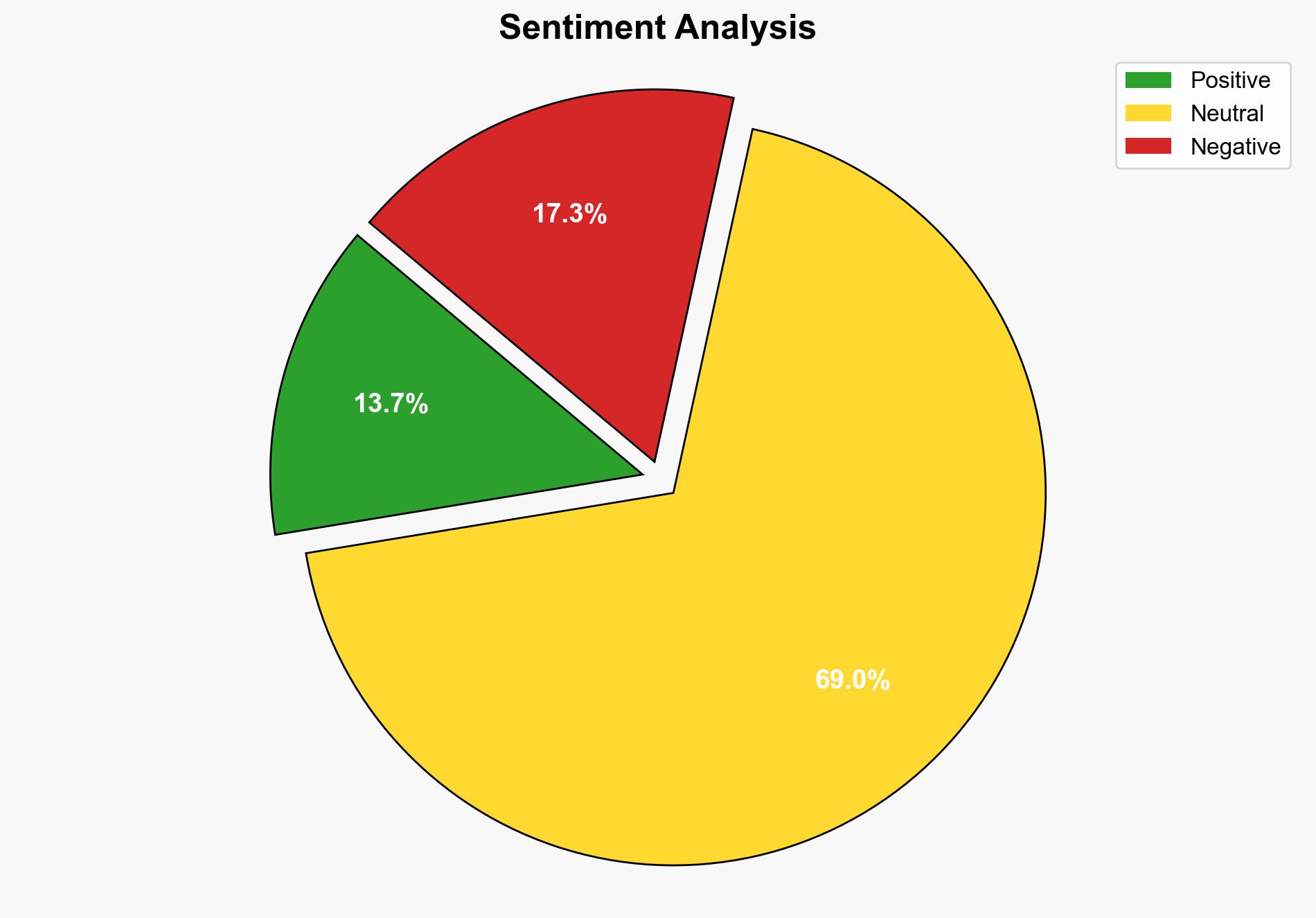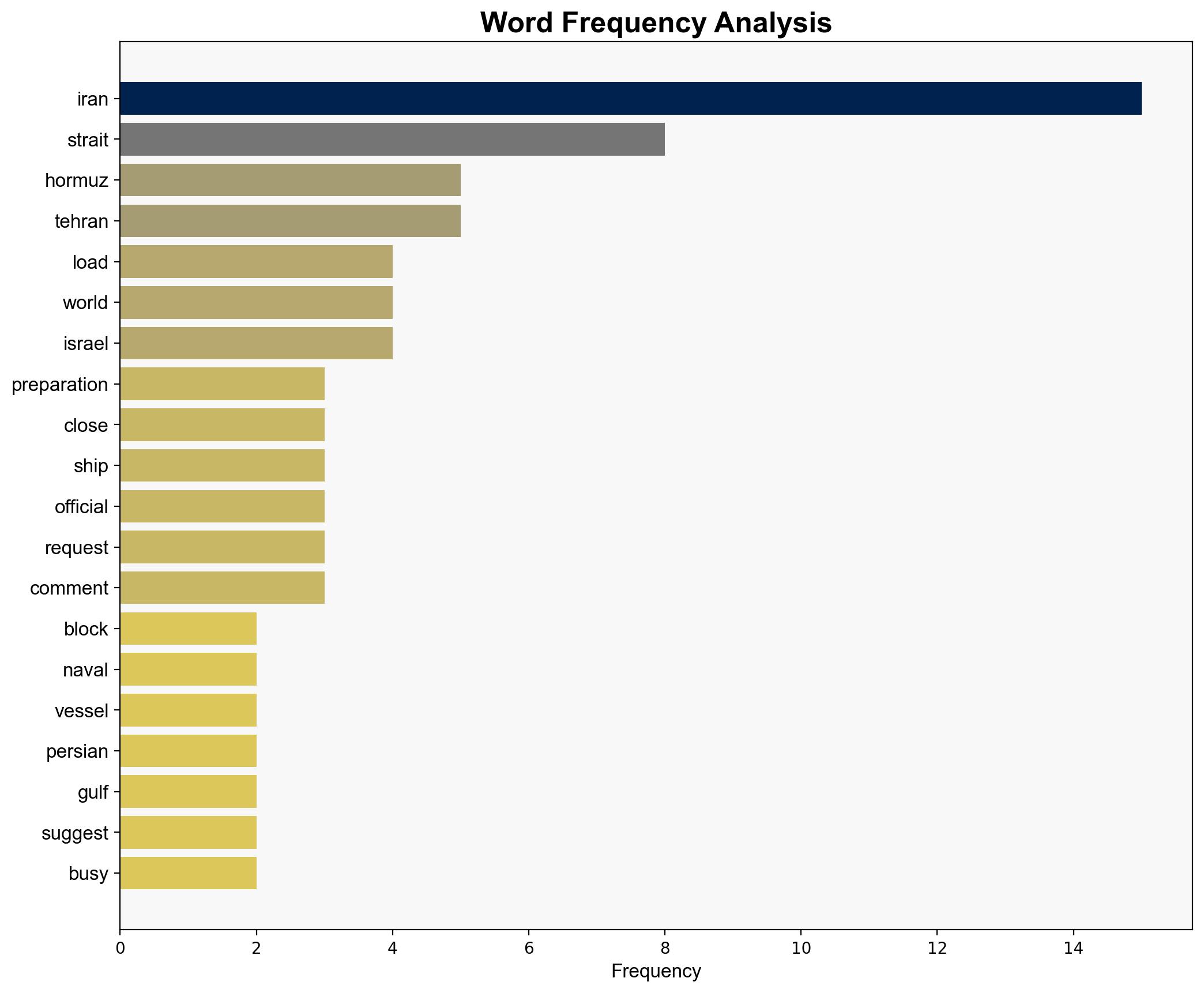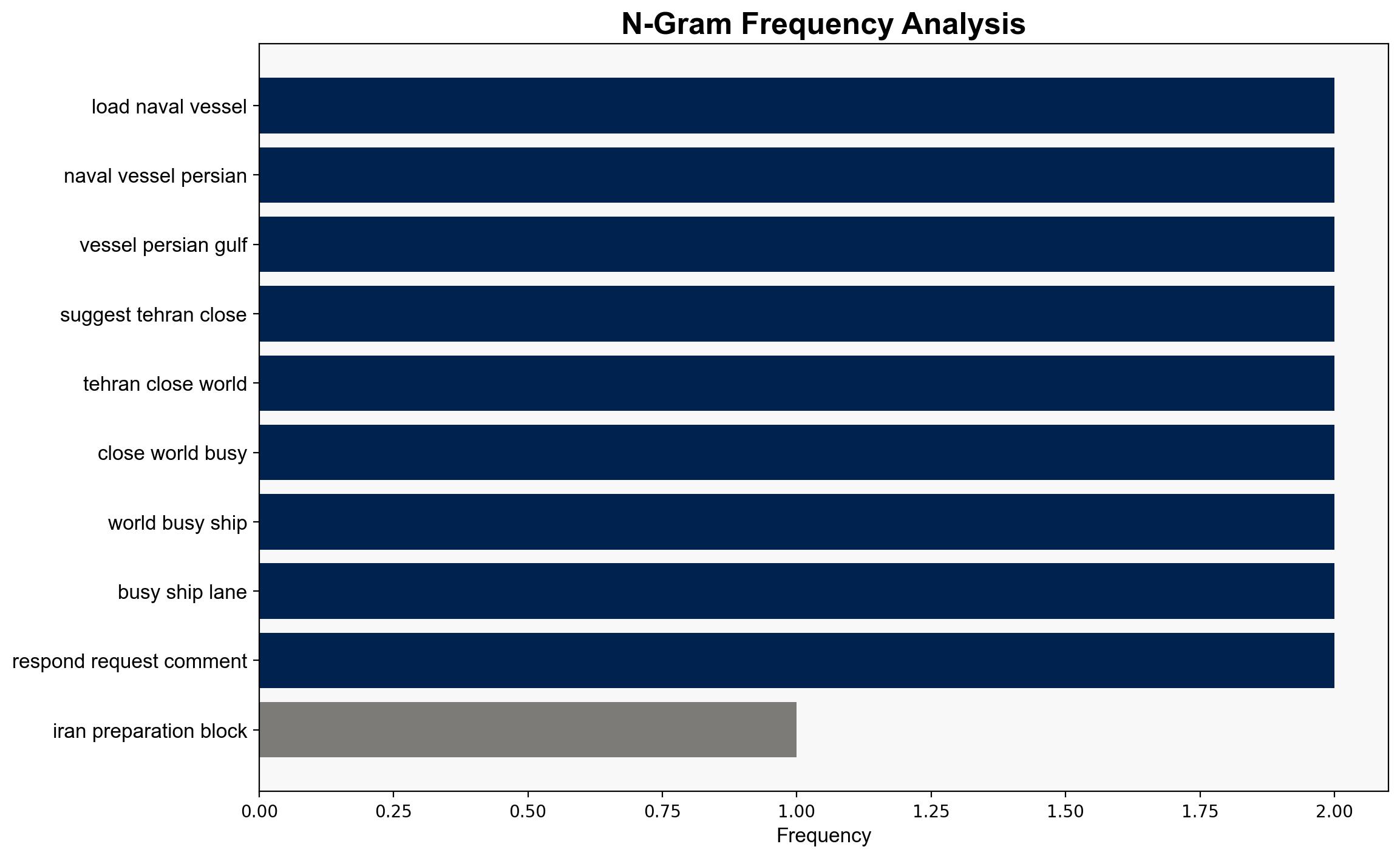Iran made preparations to block Strait of Hormuz US sources say – Haaretz
Published on: 2025-07-02
Intelligence Report: Iran made preparations to block Strait of Hormuz US sources say – Haaretz
1. BLUF (Bottom Line Up Front)
Iran has reportedly prepared to block the Strait of Hormuz by loading naval mines onto vessels in the Persian Gulf. This action follows an Israeli strike on an Iranian site, raising concerns about a potential blockade that could disrupt global oil and gas shipments. Such a move would likely escalate regional tensions and impact global energy markets. Immediate diplomatic engagement and strategic military readiness are recommended to prevent further escalation.
2. Detailed Analysis
The following structured analytic techniques have been applied to ensure methodological consistency:
Causal Layered Analysis (CLA)
At the surface level, the loading of naval mines indicates a direct response to perceived threats from Israel. Systemically, this reflects Iran’s strategic posture to assert control over critical maritime routes. The worldview underpinning these actions is Iran’s perception of encirclement and existential threats. Mythologically, the narrative of resistance against external aggression is reinforced.
Cross-Impact Simulation
A blockade of the Strait of Hormuz could trigger economic instability in oil-dependent economies, provoke military responses from regional powers, and strain diplomatic relations globally. Neighboring states might face increased security challenges and economic pressures.
Scenario Generation
– Best Case: Diplomatic negotiations de-escalate tensions, and Iran withdraws its naval mines.
– Worst Case: A full blockade leads to military confrontations and severe disruptions in global oil supply.
– Most Likely: Increased naval presence and heightened alert status in the region, with ongoing diplomatic efforts to resolve tensions.
3. Implications and Strategic Risks
The potential blockade poses significant risks to global energy markets, with possible spikes in oil prices. Militarily, it could lead to confrontations in the Gulf region. Politically, it may exacerbate existing tensions between Iran and Western nations, complicating diplomatic efforts. Economically, prolonged disruptions could impact global supply chains and economic stability.
4. Recommendations and Outlook
- Engage in diplomatic dialogue with Iran to address security concerns and prevent escalation.
- Enhance naval readiness in the region to ensure freedom of navigation and deter aggressive actions.
- Monitor regional alliances and prepare for potential shifts in geopolitical dynamics.
- Scenario-based projections:
- Best Case: Diplomatic resolution leads to de-escalation and stability in oil markets.
- Worst Case: Military conflict disrupts global trade and energy supplies.
- Most Likely: Continued tension with intermittent diplomatic engagements.
5. Key Individuals and Entities
– Tehran leadership
– Israeli government
– Iranian military officials
6. Thematic Tags
national security threats, regional stability, maritime security, global energy markets





